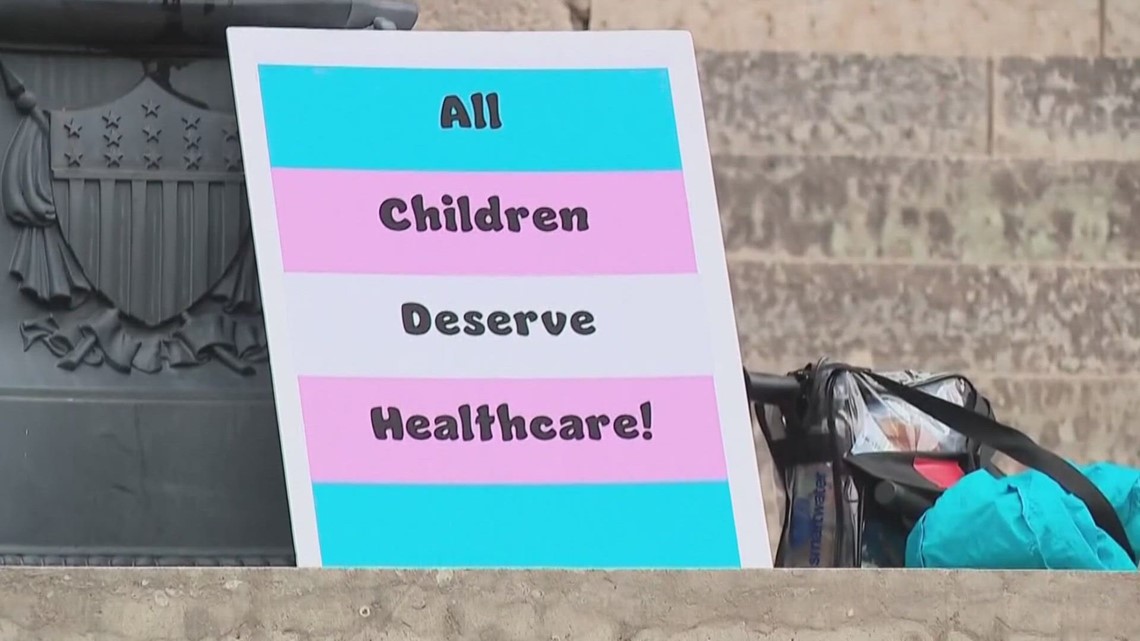
In Columbus, Ohio, the Ohio House of Representatives convened on Wednesday to override Governor Mike DeWine’s veto of a bill that would ban all gender-affirming treatment for adolescents in Ohio. House Bill 68 also prohibits transgender individuals from participating in girls’ and women’s sports.
The House called an early session for 2 p.m. Wednesday to vote to override the veto. On Monday, Jason Stephens, the Speaker of the House, asserted that he has the votes necessary to make the override happen in the chamber.
Stephens said, “I believe we passed this bill back in the summer, the Senate passed it in December, we concurred with it, and it was well over the veto-proof majorities that voted.” “I believe there are people on both sides who have different opinions on this matter, and I believe the governor also said this.” I believe there would be a sizable number of supporters of the bill, the override, who genuinely believe it is best for protecting children.”
If the House votes to override, the Senate hasn’t specified when it will do so.
“Look at this, we’re the House. The Senate is free to do as it wishes. We’re going to meet the next day and take action,” Rep. Stephens stated.
In addition to the HB 68 override, many other pieces of legislation are being discussed during the House Session.
House Minority Leader Allison Russo stated that HB 68 and the governor’s executive order prohibiting gender-affirming therapies go against allowing people to consult their healthcare providers.
“In the end, we believe that this restricts parents’ ability to make important decisions about the care of their children with their medical professionals, so we continue to oppose this,” Russo said. “I believe it’s yet another instance of Republicans getting in the way of people getting the care they believe is necessary from their providers.”
Kaleidoscope Youth Center in Columbus is a volunteer organization supporting LGBTQ+ children in Ohio. Officials said this determination to overturn the governor’s veto is tragic for the children they serve.
“Young people deserve so much more than listening to adults who don’t understand what’s going on debate their rights,” Mallory Golski, the KYC’s Political Engagement and Advocacy Manager, speculated. “I’ve noticed that those young people are simply worn out. They are currently trying to hold on to that small amount of relief rather than worrying more about the possibility of an override.”
DeWine stated during his veto speech that he thought some young trans people in Ohio might die if HB 68 were to become law. Golski, who has personally heard such concerns, echoed the governor’s sentiment.
DeWine issued an executive order last Friday that forbade gender-affirming surgeries on adolescents but left hormone therapy and other minor medication unaffected. In Ohio, HB 68 forbids all of it for adolescents.
The Ohio Children’s Hospital Association issued a statement on Tuesday regarding the governor’s executive order and the potential reversal of the HB 68 veto.
“The Ohio Children’s Hospital Association supports this administrative order, and we have never opposed a ban on surgeries for young people with gender dysphoria,” said Nick Lashutka, President & CEO of the Ohio Children’s Hospital Association. “We look forward to being an active participant in the rule-making process as outlined by Governor DeWine.”
Equitas Health, a volunteer health system that supports the LGBTQ+ area, opposed both HB 68 and the governor’s executive order.
“These proposed operational rules are irresponsible, and they completely disregard the evidence-based health standards established by authorities like WPATH,” said Dr. Rhea Debussy, the External Affairs Director for Equitas Health. “These regulations are a perfect example of government overreach in pursuing an extreme anti-trans agenda.”
If it passes in the House on Wednesday, the Senate hasn’t said when it will hold an override vote. Both chambers need a three-fifths majority for an override to take place. If the Senate does override the veto as well, HB 68 could become law 90 days after the vote.



